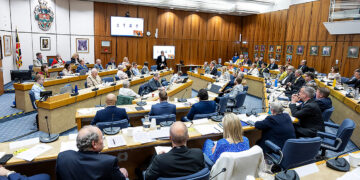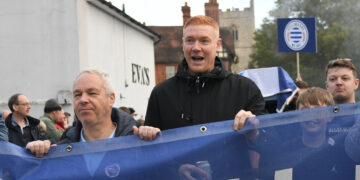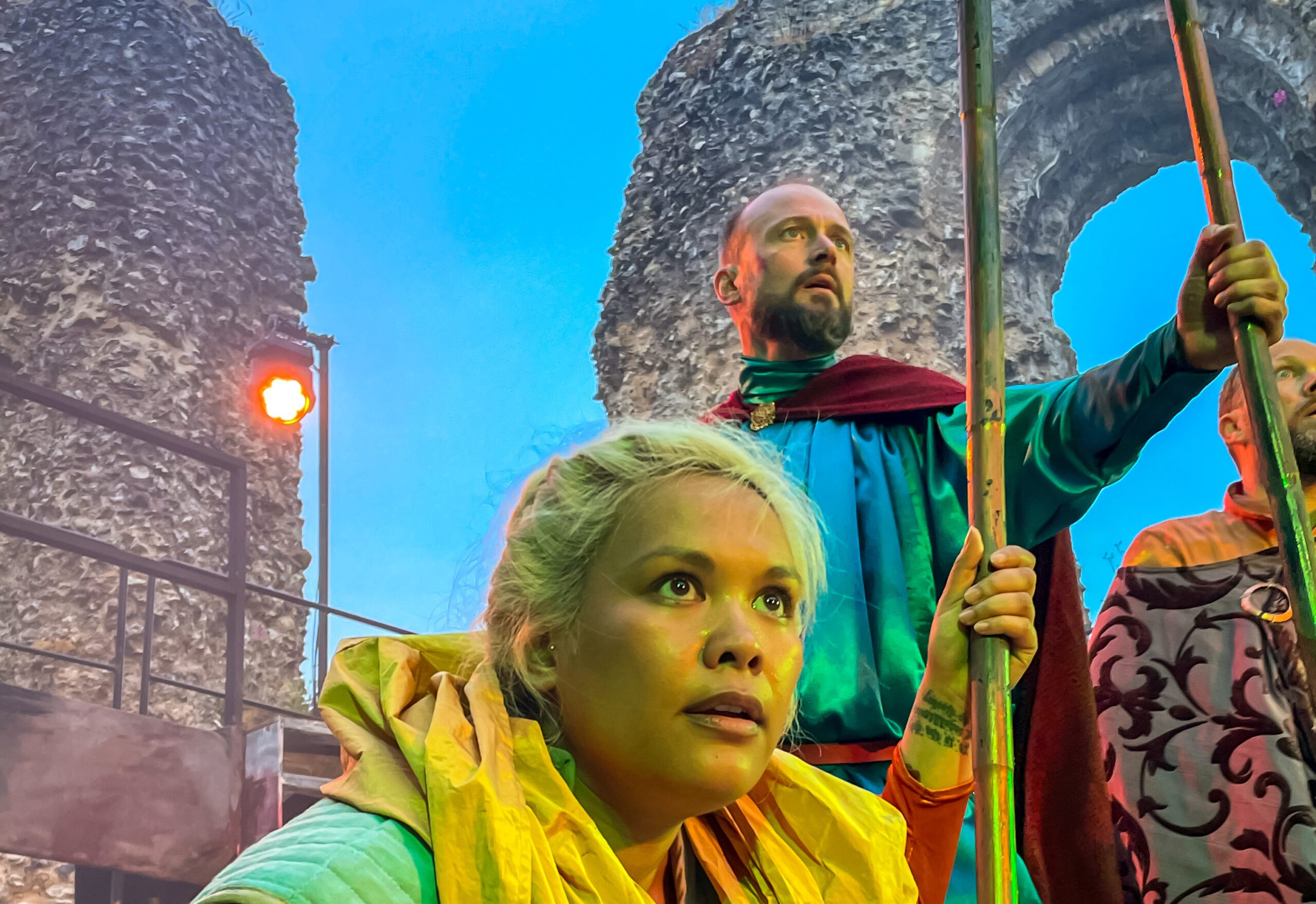RABBLE Theatre has brought back its 2016 production of Henry I in Reading– and it’s easy to see why.
While the company is famed for its accomplishment in physical theatre, it has not rested on its laurels in the retelling of the story which culminates in the creation of Reading Abbey.

The play begins with an ailing William the Conqueror dividing up his royal estates and duties from his deathbed, with his heirs eager to bolster their status as rulers.
We focus on Henry, who is left spare after his father’s dual territories of England and Normandy are given to his brothers.
A struggle for power ensues as the new Kings fall prey to greed and warmongering, and Henry is suddenly thrust onto the throne following a hunting accident.
The events of the play examine Henry’s reign as King of England as he is haunted by his past deeds and his efforts to maintain stability.
Henry himself is portrayed by Toby Davies, who brings complexity and humanity to the role which forms the keystone of the play’s events and characters.
Davies’ pathos is to be commended, as he sells both romantic adoration and vengeful bloodlust with equal vigour and believability, especially in the moments where he is confronted with the results of his past transgressions.
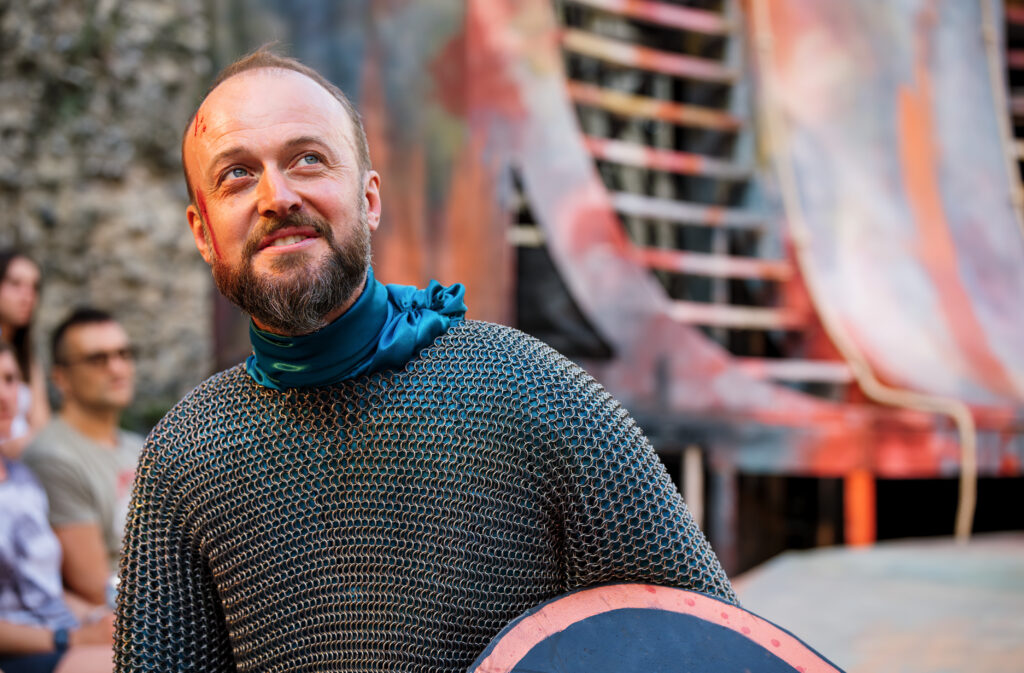
Historical plays hinge on this kind of empathetic, though not necessarily sympathetic, portrayal in bringing the struggles of real people to the present-day audience.
As the titular character, this is most vital in Henry as the lead role and emotional focal point of the play– a pressure which Davies handles with ease and excitement.
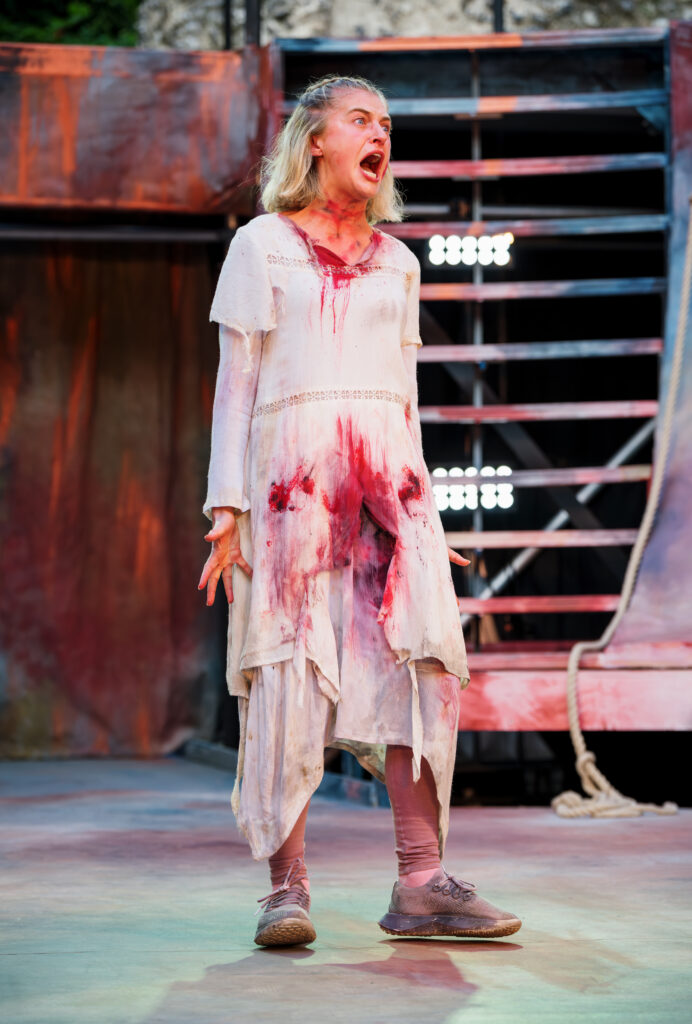
Similarly, Georgie Fellows’ performance as Henry’s wife matches Davies perfectly, with her portrayal bestowing all of the hallmarks of independence, intelligence, and benevolence which reflect and refract Henry’s sensibilities in all the right ways.
Fellows’ portrayal of a villager subjected to unspeakable cruelty by a landing party is visceral in its realism and haunting in its strong reverberations throughout the rest of the play.
Joseph Black’s pious portrayal of the soon to be Bishop of Salisbury is just as grounded, firmly establishing a core cast of strong, relatable characters that lend the emotional weight the story relies upon.
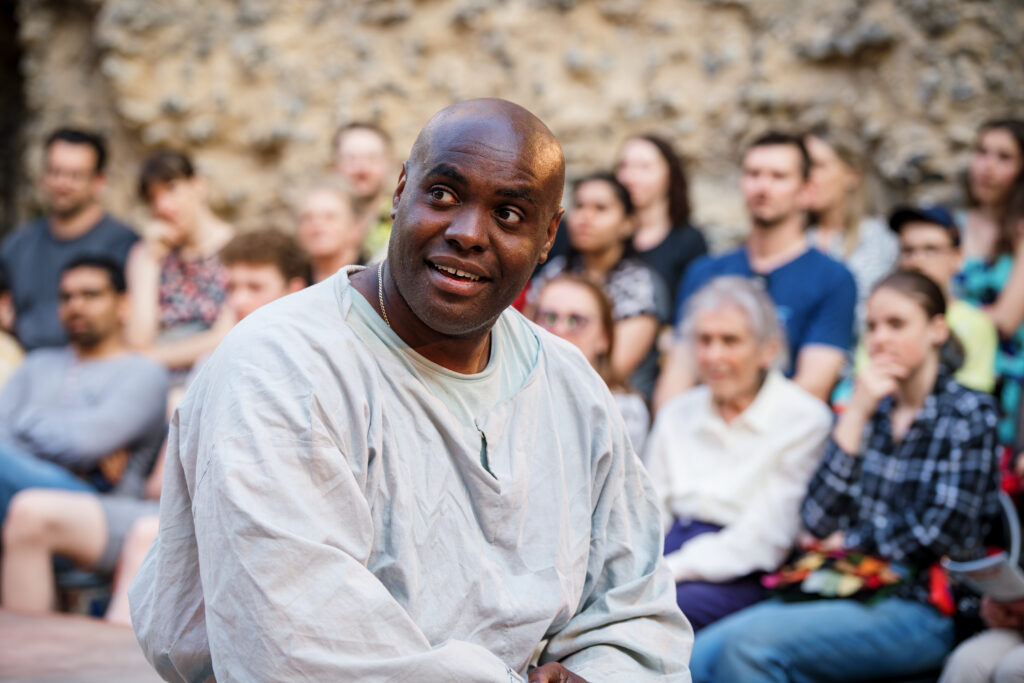
Gabrielle Sheppard’s portrayal of fellow heir to William’s thrones, William II, counteracts this with bombastic aplomb, stealing many of their scenes with a fizzing excitability which only becomes more contagious as the production continues.
Greg Barnett’s portrayal of the dark and ruthless Robert De Belleme bring similar contrast, bringing a performance which revels in the deepest, dingiest corners of the character, again lending the all-important weight to his choices during the play and their consequences.

Amy Conachan in particular shines through, combining excellently-observed touches with raw, emotional beats to create one of the stand-out performances of the piece.
Mark Middleton and Anjelica Serra round out the principal cast with assured performances of Robert Curthouse and Agnes of Ponthieu respectively.

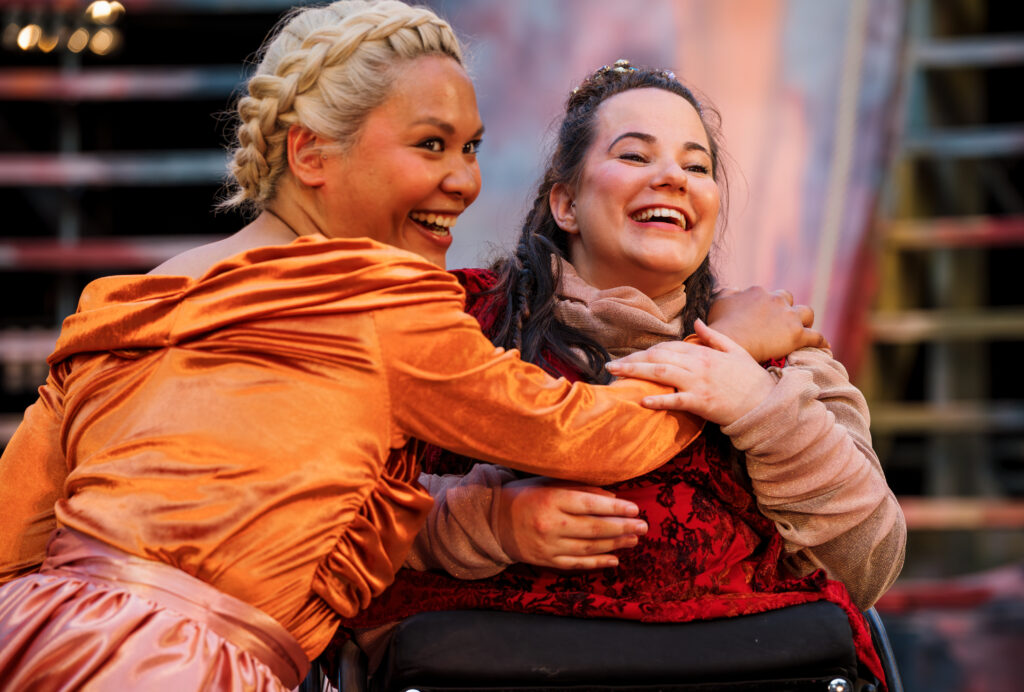
A very strong cast is complimented by staging and production at every turn, with engaging and dynamic movement sequences breathing life into segments which might be otherwise difficult to stage or explain through dialogue.
A scene which sees a number of the cast getting into difficulty while travelling at sea, in particular, features a deeply arresting final note which stands out as a breath-taking moment.
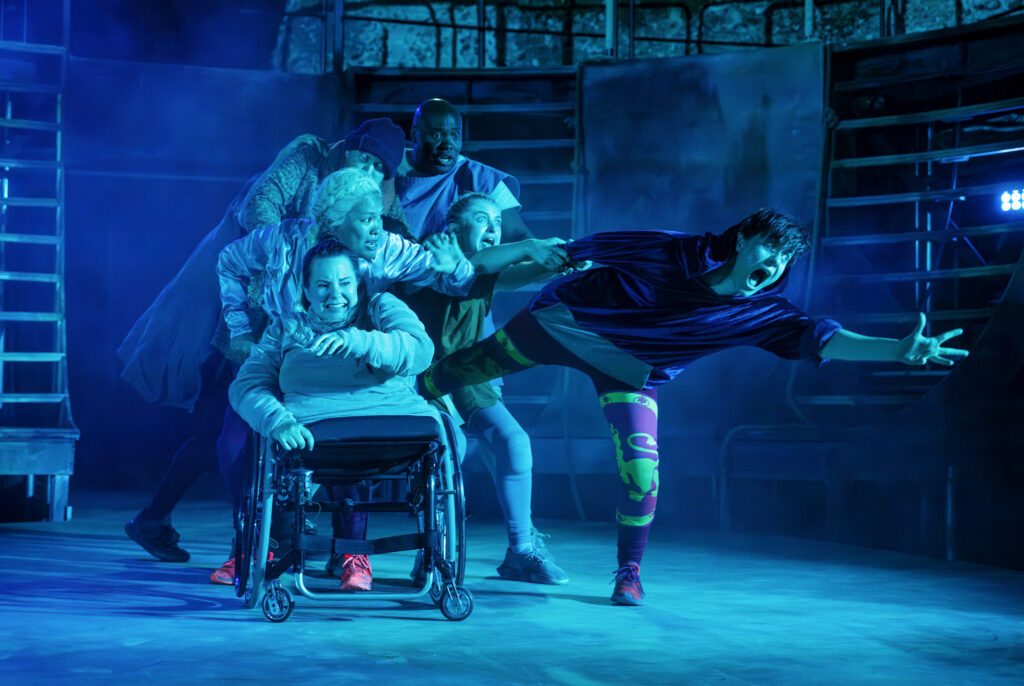
Beth Flintoff’s writing imbues the events of the play with pathos, grounding them not only in their factual, historical context but also in a humane and social context, too.
Similarly, lighting and sound are used to particularly good effect, including a moment where a complete tonal shift in the play sees the auspicious surroundings of the Abbey Ruins turn from day to night in what seems like less than a second.
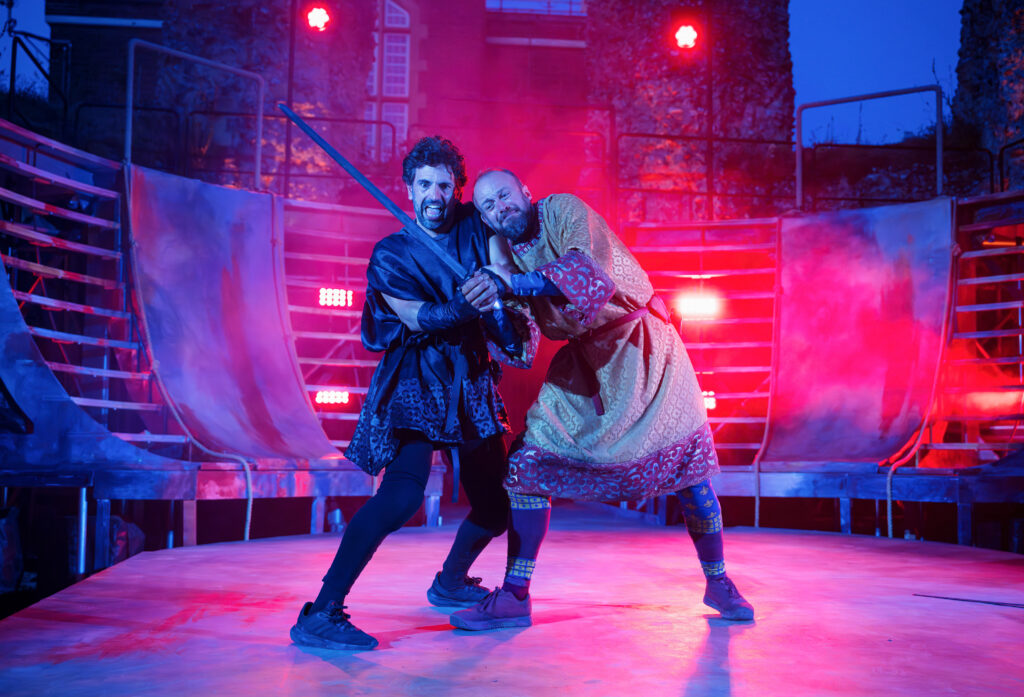
Overall, Henry I is a rollercoaster of power struggles, both within personal relationships and across geographical borders, confidently delivered by all involved and excellently directed.
Its twists and turns close with a final scene which grounds the entirety of the play in the historic Abbey in which the production is staged, bringing the events right up to the present day in a chilling moment of import and impact.
While the bones of the King buried nearby already give the performance a ghostly significance, it is the sheer craft of the production which ultimately leaves you feeling like you’ve been witness to the hallowed history and the beginnings of the Abbey which has itself become so much a part of Reading.

—–
Henry I is showing at Reading’s Abbey Ruins from Tuesday, June 13, to Saturday, July 1.
It is also showing at Winchester Great Hall from July 12-15, and St Paul’s Church in Covent Garden, London, from July 20-22.
Tickets and more information about the production are available via: rabbletheatre.com/henry-i/


